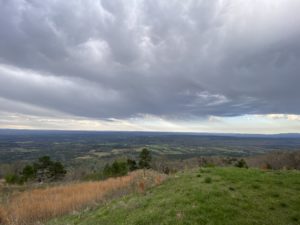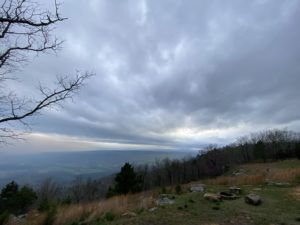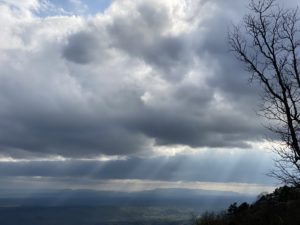Easter 2022

Easter is such a special time, because spring and new life is evident everywhere and coming forth with a ferocity that one can’t ignore. One looks at brown soil one day and a green-grass carpet the next. Trees without a single leaf yesterday now flutter in the wind by thousands or millions, and colorful flowers pop out of the ground from seemingly nowhere. It’s as if Someone commanded them to come forth. It seems mystical, magical, and beautiful. It makes our hearts sing with hope and expectation of warmer seasons, longer days, and more light to work and play.
That’s fitting and apropos, but not the real meaning of Easter per se. New spiritual life has been made possible and commanded to come forth from the original passion week culminating in Christ’s resurrection — life from death indeed. It’s hard to put into words for those who see, yet it makes our hearts swell and feel alive, with hope for better days in this life and then for eternity with the One whose sacrifice made it possible. Amen.
Something changed in response to the light of the sun and the tilt of the earth. Something changed in response to the light of the Son and the inclination of a human heart and head. That’s the spirit and truth about Easter. It’s not that simple, and it’s not that complicated. Maybe it isn’t elementary to explain precisely or in detail, but simple to experience because the grace and revelation are there, awaiting the key of faith.
The Road
The road to Emmaus provides many insights into its complexity and simplicity. And why our hearts are full of joy and excitement at Easter’s realization. Our pastor preached on this today, and most of the insights I share here are from his sermon. It’s beautiful synchronicity to me that I wrote a chapter in my upcoming book, “The Puzzles of 2020?” over the weekend saying that the vision or dreams of many had been altered or crushed by the COVID pandemic, and the cure for crushed dreams and blurred vision is a fresh encounter with God. I used Elijah and Isaiah as examples. Then in a Good Friday blog, I cited this same Emmaus incident:
“Maybe the dashed dreams of his disciples and those who believed Jesus to be the Son of God (as He claimed and His miracles attested), the promised Jewish Messiah and King, are summed up by two of his disciples walking to their hometown, Emmaus. They said to a stranger walking with them: ‘Are you the only one visiting Jerusalem who does not know the things that have happened there in these days? … ‘About Jesus of Nazareth,’ they replied. ‘He was a prophet, powerful in word and deed before God and all the people. The chief priests and our rulers handed him over to be sentenced to death, and they crucified him; but we had hoped that he was the one who was going to redeem Israel’” (Luke 24:18b-21a).
The Luminary
Their answer describes the rather hopeless state of two friends walking home, their vision and dreams crushed. They were about to have a God encounter. But it took a while for the light to dawn. That the light did dawn is the most beautiful part of the story for all of us. But fascinating too is that it took a while for its truth to light upon them. Let’s look at Luke 24 for what it might teach us.
I will take some liberties and assume that most of you have read or heard the story many times and have gleaned lots of truth. So I’ll move quickly and trust your familiarity will help you appreciate these insights and apprehend them quickly. They speak to our day and age of doubt and skepticism. They speak to the need for revelation and illumination. It’s a beautiful mystery that is more easily caught than taught, as this story illustrates. Let’s dive in.
These two travelers are on the dark road of doubt. Are you in a dark place? Are you having a debate or an argument about your faith? Are you slow of heart to believe — foolish? Are you walking away from your faith? Do you think Jesus let you down? Jesus himself met these two on the road in this very situation.
Many of us ascribe to the saying, “Seeing is believing.” But these guys have the resurrection staring them in the face, and they’re not believing. Jesus starts to draw them into a conversation, “What are you talking about?” They answer him with their gloomy and doubting assessment that I recorded above. It’s ironic that Cleopas speaking a bit rudely, says: “Are you the only one visiting Jerusalem who does not know the things that have happened there in these days?” (Luke 24:18). It’s ironic because he’s the one who isn’t aware of what happened in Jerusalem during these days.
They had hoped for what they did not see. How can they reconcile this in their mind? They saw Jesus suffering and then dying. Our suffering can drive us to moments of doubt. Do you have your vision of a king? A savior? What will he look like? Obviously, this is not what they expected of Jesus.
But now we see the stranger (Jesus) rebuke them a little bit: “‘How foolish you are, and how slow to believe all that the prophets have spoken! Did not the Messiah have to suffer these things and then enter his glory?’ And beginning with Moses and all the Prophets, he explained to them what was said in all the Scriptures concerning himself [emphasis added]” (Luke 24:25-27 NIV).
What about us?! They should know because of what He told them during 3 1/2 years together. They also knew the Scriptures they had pretty well. Then what about us? Indeed, we have more of the story, more evidence, and more proof to understand the happenings that day and believe Jesus and everything He told us. So we should quickly and easily move into His life by faith. Isn’t this a reasonable expectation? Isn’t this His expectation? You decide. But there are some tricky parts to the story we’ve not addressed yet.
Let’s back up toward the beginning of the story: “As they talked and discussed these things with each other, Jesus himself came up and walked along with them; but they were kept from recognizing him [emphasis added]” (Luke 24:15). They were kept from recognizing him! What do we make of this, especially in light of the rest of the story? On the surface, it seems that it takes God’s action for people to recognize Jesus, at least in part. Let’s go on with the story, remembering they just received one last Bible lesson.
Breaking Bread
Will they get it? The suspense grows as they reach their home, and Jesus continues to travel onward: “As they approached the village to which they were going, Jesus continued as if he were going farther. But they urged him strongly, ‘Stay with us, for it is nearly evening; the day is almost over.’ So he went in to stay with them” (Luke 24:28-29).
Then what? They sat down to eat: “When he was at the table with them, he took bread, gave thanks, broke it and began to give it to them. Then their eyes were opened and they recognized him [emphasis added]” (Luke 24:30-31a). So it is; your eyes must be opened to see Him as He is. So it is, if He breaks the bread of revelation for you Himself, you know it. And you’re never the same! You don’t live by bread alone any longer, but by every word or revelation that proceeds from God.
It’s fascinating what happened next: “and he disappeared from their sight” (Luke 24:31b). While He was with them, they didn’t recognize Him. When they recognized Him, He vanished.” Apparently, after you see the Son, then from then on, you relate to Him mainly by His Spirit. It’s not merely semantics, and it doesn’t matter either. You know it’s Him, and He can teach you how it works by walking, or by revelation from His Word, or revelation period. You’ve seen the resurrected Lord, and you can trust Him and live with Him in a new way on a new day. That’s the Gospel, and that’s a fact.
Burning Hearts
How do we know? Burning hearts demonstrated what they had seen and experienced — the living, resurrected Lord. He disappeared from their sight in bodily form, and all of a sudden, they doubted no more and spoke of it: “They asked each other, ‘Were not our hearts burning within us while he talked with us on the road and opened the Scriptures to us?’” (Luke 24:32).
Not only that, with their sorrow turned to joy, they hurried back into Jerusalem, but not in the same spirit they had departed. They were delighted with the new reality and couldn’t wait to share it with their brothers. Travel wasn’t that safe at night, and they didn’t have street lights, but off they went on the seven-mile trek to tell their friends what they had seen, heard, and experienced with great joy. It couldn’t wait! Their actions are more evidence of their burning hearts: “They got up and returned at once to Jerusalem. There they found the Eleven and those with them, assembled together and saying, ‘It is true! The Lord has risen and has appeared to Simon.’ Then the two told what had happened on the way, and how Jesus was recognized by them when he broke the bread” (Luke 24:33-35).
What Happens Next?
It gets better! And it’s more of the same. Humans are sometimes dull, hard to convince, and slow to believe. The Lord Himself shows up immediately after these two tell their story to the disciples! You’d think this timing and this appearance would do a great deal for them and put all doubt aside about what had happened. Wouldn’t you?
Let’s take a glimpse: “While they were still talking about this, Jesus himself stood among them and said to them, ‘Peace be with you.’
They were startled and frightened, thinking they saw a ghost. He said to them, ‘Why are you troubled, and why do doubts rise in your minds? Look at my hands and my feet. It is I myself! Touch me and see; a ghost does not have flesh and bones, as you see I have.’ When he had said this, he showed them his hands and feet. And while they still did not believe it because of joy and amazement, he asked them, ‘Do you have anything here to eat?’ They gave him a piece of broiled fish, and he took it and ate it in their presence [emphasis added]” (Luke 24:36-43).
I’m sure Jesus enjoyed the fish and the beautiful reunion moment with His followers and friends, but He had to shake His head at their continuing unbelief! At first, they didn’t believe because of fear and disillusionment. Now they don’t believe because of joy and amazement!
I will choose to believe the best and step out on a limb a bit and say they couldn’t be rational or use their hearts and minds to believe or process because of all the joy at His surprise visit. He was alive! With them! Just like before the crucifixion and burial. It was like being surprised by a dear old friend who’s come knocking at your door late at night, and you say, “I can’t believe it’s you!” Or, “I can’t believe you’re standing here!” But multiply that feeling times a quad zillion. They had been separated by death!
That said, I still find this a bit puzzling or disconcerting. Maybe you can’t process things with all that flood of emotion, but you still know Who is standing there, and it shouldn’t take anything else to believe. Well, let’s move on to what happens next. It does add a little bit of clarity.
Jesus went on: “He said to them, ‘This is what I told you while I was still with you: Everything must be fulfilled that is written about me in the Law of Moses, the Prophets and the Psalms’” (Luke 24:44). This reminder was helpful and got them to piece the puzzles of Scripture together again with what they had just seen happen and experienced. But what happens next seems to be the rest of the story and the part we usually don’t notice and don’t understand.
What did Jesus do next: “Then he opened their minds so they could understand the Scriptures [emphasis added]” (Luke 24:45).
Is this the same as breaking bread for them and with them? Maybe so. At any rate, what they didn’t believe before, they understood and believed now. Again, there appears to be an unseen God part in moving from doubt to belief. Because we have grown up in a secular, materialist culture and churches many times, we have trouble with the unseen. But it’s central to the Bible, and we must be schizophrenic not to realize it and function in that realm. Jesus told the woman at the well: “God is spirit, and those who worship Him must worship in spirit and truth” (John 4:24). And what Jesus told Nicodemus in John chapter 3 is the key and secret (an open secret) to life in the Spirit and life in the Kingdom.
What A Day!
Jesus was now telling His disciples something for the last time. I think He had their attention: “He told them, ‘This is what is written: The Messiah will suffer and rise from the dead on the third day, and repentance for the forgiveness of sins will be preached in his name to all nations, beginning at Jerusalem. You are witnesses of these things. I am going to send you what my Father has promised; but stay in the city until you have been clothed with power from on high [emphasis added]’” (Luke 24:46-49).
So Jesus finished this welcome surprise and exhilarating visit with a charge and a promise to them. Wow! What a day! Easter, April 7, 33 AD! They know again they are accepted by God, their sins are forgiven, taken away by His sacrifice, and now they receive new directions and vision for the future — a future not devoid of Him. What could be better?! They could now sleep in peace! Or maybe they couldn’t sleep at all? Because He told them He would do something else for them not many days from now.
Then he led them out to Bethany, a place they had often enjoyed with Him, blessed them, and left them — but not for long. To be continued in ten days, on Pentecost.
******************
“He is not here, for He has risen, just as He said. Come, see the place where He was lying” (Matthew 28:6)
An Easter Hallelujah of Innocence and Beauty
Ben Wilson’s Easter Sermon at Harvest Church Fayetteville AR





